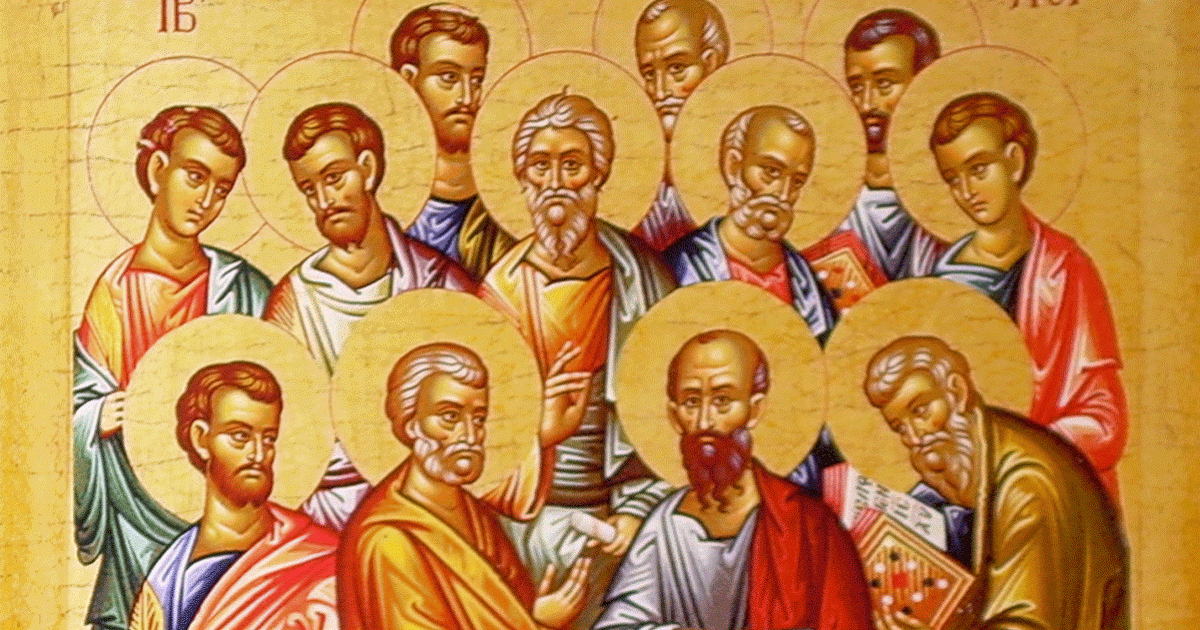The saying is sure. I desire you to insist on these things, so that those who have believed in God may be careful to apply themselves to good deeds; these are excellent and profitable to men. But avoid stupid controversies, genealogies, dissensions, and quarrels over the law, for they are unprofitable and futile. As for a man who is factious, after admonishing him once or twice, have nothing more to do with him, knowing that such a person is perverted and sinful; he is self-condemned. When I send Artemas or Tychicus to you, do your best to come to me at Nicopolis, for I have decided to spend the winter there. Do your best to speed Zenas the lawyer and Apol′los on their way; see that they lack nothing. And let our people learn to apply themselves to good deeds, so as to help cases of urgent need, and not to be unfruitful. All who are with me send greetings to you. Greet those who love us in the faith. Grace be with you all.
Titus 3:8-15(Epistle of the Sunday of the Holy Fathers)
The Sunday that falls between October 11 and October 17 each year commemorates the Holy Fathers of the 7th Ecumenical Council, which was held in Nicaea in the year 787. The main issue that the Council dealt with was the use of icons in the churches. There had been controversy over whether icons were graven images from about the year 726 up until the 7th Ecumenical Council. The icons were finally restored to the churches in 843. We commemorate their restoration to the churches on the First Sunday of Great Lent, which has been called the “Sunday of Orthodoxy,” a day on which we make elaborate processions with icons.
The Epistle lesson of today, the 7th Ecumenical Council, was also the same as the Sunday in July when we commemorated the 4th Ecumenical Council. (The Gospel lesson is different, however.) When I wrote on the Epistle reading back in July, I talked about the “stupid controversies, genealogies, dissensions and quarrels over the law” that seem to constantly derail our church. And also how we tend to not follow what St. Paul writes to Titus, that factious people should be excluded from the church. We tend to do the opposite. We tend to give too much attention to them.
Saint Paul reminds us that we are supposed to apply ourselves to good deeds, that doing good deeds is excellent and profitable to others. I’m reminded of the petition that we offer in the Divine Liturgy, “For that which is good and beneficial for our souls, and for peace for the world, let us ask the Lord.” If we lived out our lives, making every decision according to this metric—is it good for my soul? And does it promote peace in the world?—imagine how our lives and how our world could be different.
People to this day argue about icons. People outside our church say that they violate the commandment to not have graven images. Yet, in our own churches, there are many of us who are in fact guilty of using them only as images, rather than as tools to help bring us closer to Christ. If we have icons on the walls of our homes but we never pray before them, we use icons as decorations, but not as tools for prayer and spiritual growth. If we wear crosses or prayer ropes but we don’t act Christian, then people see our trinkets as just that, trinkets.
If I’m in an argument with someone about our use of icons, I say that the icons are a tool that help me to pray. They give me not only images of what the holy people looked like, they help keep me focused and centered when I am praying. Prayer should help me love God and love my neighbor better. My point is that if I am a collector of icons but not a person of love, then my arguing for icons is in fact, kind of pointless, it creates a stupid controversy. If someone else is not Orthodoxy, and thus has no icons, but if they are filled with God and demonstrate love for others and I put them down for not having icons, this also creates a stupid controversy.
Using icons as tools to help us pray, and using prayer to help us witness in a positive way the Gospel of Christ, will not generate stupid controversy, but potentially profitable discussion.
It is ironic that more arguments take place in Orthodox Church communities over icons and buildings than in over how to spread the word of God. We truly have to keep in mind what is important in our church communities as well as in our personal lives.
Many times, we choose to create controversy over things that don’t really matter. And even more so, we allow controversial things that don’t matter to get us down or distract us.
Each time I read Scripture, I take away something new. I hope today you will take away a conviction to focus on good deeds, the things that are excellent and profitable to your soul, and to others. Because it is not only avoiding the bad but seeking the good that pleases God.
Supremely blessed are You, O Christ our God. You established the holy Fathers upon the earth as beacons, and through them You have guided us all to the true Faith, O greatly merciful One, glory be to You. (Apolytikion of the Fathers of the Seventh Ecumenical Council, Plagal 4th Tone, Trans. by Fr. Seraphim Dedes)
Do as many good deeds as you can today!


0 Comments